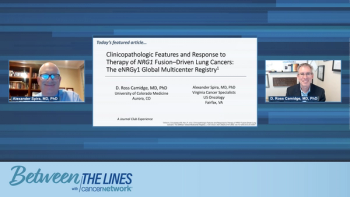
Practical considerations regarding the role of NRG1 fusions in lung cancer management and how that has been informed by the eNRGy1 global registry study.

Your AI-Trained Oncology Knowledge Connection!


Practical considerations regarding the role of NRG1 fusions in lung cancer management and how that has been informed by the eNRGy1 global registry study.

A specialist describes the advances being made in metastatic prostate cancer and provides some clinical pearls for community oncologists.
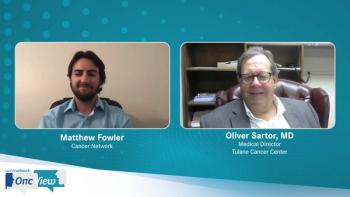
Oliver Sartor, MD, discusses the use of rucaparib in treating metastatic prostate cancer.
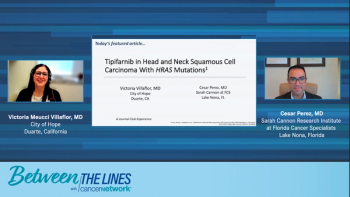
Key takeaways from a paper that evaluated the efficacy of tipifarnib in recurrent and/or metastatic mHRAS head and neck squamous cell carcinoma.

An overview of what is currently understood about the use of ctDNA assays to help guide treatment decisions when managing patients with colorectal cancer undergoing resection of metastases.

A key opinion leader explains the role of PARP inhibitors in metastatic prostate cancer and reviews clinical trial data.

Brian I. Rini, MD, detailed the focus, goals, and key end points of a 3-arm, phase 3 trial comparing MK-1308A or belzutifan plus lenvatinib and pembrolizumab to the control of lenvatinib and pembrolizumab alone to treat patients with advanced clear cell renal cell carcinoma.

Dr. Oliver Sartor illustrates the systemic treatment options for metastatic castration-resistant prostate cancer and what to consider when choosing therapies.
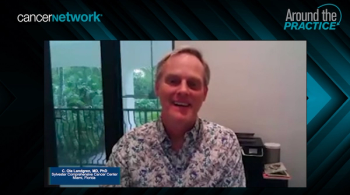
After reviewing implications of the MAIA study in multiple myeloma, experts consider unmet needs and future directions in care.

Panelists discuss the case of a 77-year-old man with newly diagnosed multiple myeloma who wishes to discontinue therapy after achieving a very good partial response.

Dr. Lyudmila Bazhenova presents a recently published article by Nazha B, et al., “Benefits and limitations of real-world evidence: lessons from EGFR mutation-positive non-small-cell lung cancer.”
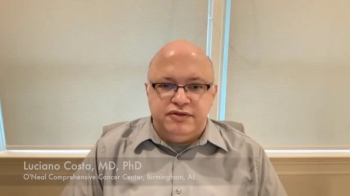
CancerNetwork® sat down with Luciano Costa, MD, PhD, at the 2021 International Myeloma Workshop to talk about how the COVID-19 pandemic affected his work and how they adapted.
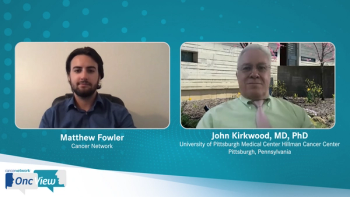
John Kirkwood, MD, PhD, addresses the idea of pseudoprogression seen in melanoma therapy.

An expert in melanoma cancer treatment relays the monitoring options for melanoma therapy and gives advice for how long these therapies should be monitored.

CancerNetwork® sat down with Luciano Costa, MD, PhD, at the 2021 International Myeloma Workshop to discuss the benefit of treatment with daratumumab, carfilzomib, lenalidomide, and dexamethasone and the population of patients with newly diagnosed myeloma who will best benefit from treatment.
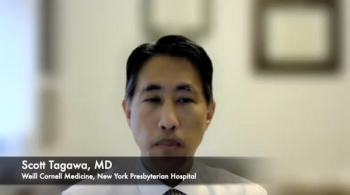
Scott Tagawa, MD, MS, detailed 2 presentations from ESMO’s presidential symposium that he thinks will have an impact on treating patients with metastatic castration-sensitive prostate cancer.

Roy S. Herbst, MD, PhD, reviews indicators of relapse or progression of disease when monitoring patients on therapy in NSCLC.

Roy S. Herbst, MD, PhD, provides insight on selecting the optimal therapy for non–small-cell lung cancer and shares considerations for the use of combination chemotherapy and immunotherapy.
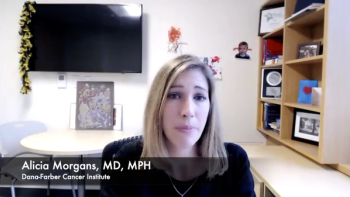
CancerNetwork® sat down with Alicia Morgans MD, MPH, at the 2021 European Society for Medical Oncology to talk survival and progression outcomes from the CARD trial in patients with metastatic castration-resistant prostate cancer.

An expert oncologist discusses the biomarker testing targets in metastatic prostate cancer.

Oliver Sartor, MD, describes the different tests routinely ordered for metastatic prostate cancer.
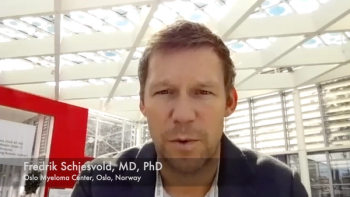
CancerNetwork® sat down with Fredrik Schjesvold, MD, PhD, at the 2021 International Myeloma Workshop to talk about minimal residual disease and its importance in the treatment of multiple myeloma.
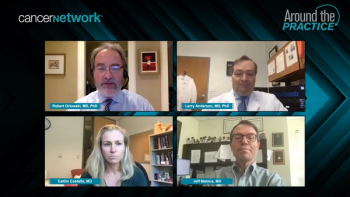
A panel of hematologists/oncologists conclude a discussion about transplant-ineligible multiple myeloma (MM) by reacting to current treatment gaps that need to be addressed.

Experts Alexander Spira, MD, PhD, FACP, and D. Ross Camidge, MD, PhD, share insight and key takeaways from the eNRGy1 global registry study.

Drs Liliana Bustamante and Richard Kim explore conclusions highlighted by a paper on postoperative MRD analysis as a strong prognostic biomarker in colorectal cancer.

Drs Cesar Perez and Victoria Meucci Villaflor review “Tipifarnib in Head and Neck Squamous Cell Carcinoma With HRAS Mutations” by Ho AL, et al.

Experts review the case of a 75-year-old woman with newly diagnosed multiple myeloma and discuss treatment selection, continuation, reduction, and duration.

In-depth considerations for available frontline therapy regimens for patients with transplant-ineligible multiple myeloma.

CancerNetwork® sat down with Edward B. Garon, MD, at the 2021 World Conference on Lung Cancer to talk about key findings with datopotamab deruxtecan therapy in patients with non–small cell lung cancer and other ongoing trials.

CancerNetwork® sat down with Alicia Morgans MD, MPH, at the 2021 European Society for Medical Oncology to discuss how a hypothetical cohort from the CARD trial highlighted the impact of treatment with cabazitaxel on costs and complications in patients with metastatic castration-resistant prostate cancer.